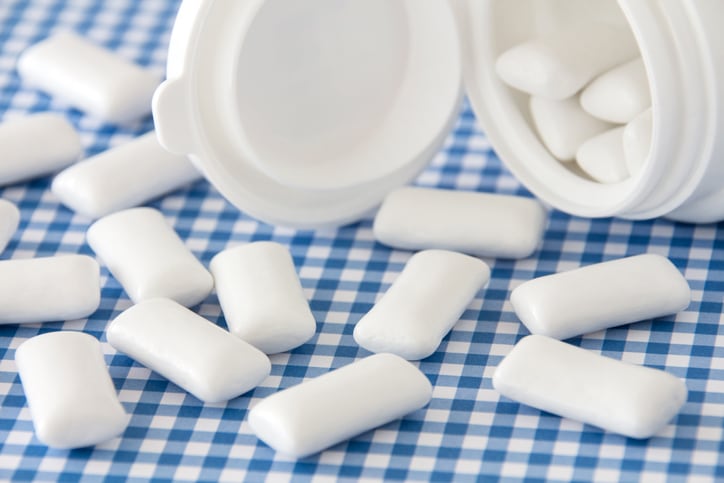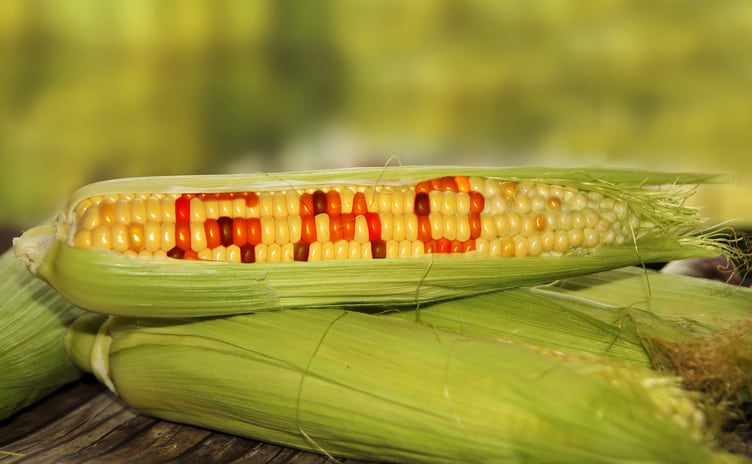Plant-based sales are witnessing rapid growth around the world. According to one report, from Facts & Factors, global plant-based meat analogues generated revenue of US$3.77bn in 2019, a figure that is expected to rise to US$9.43bn by 2026. The plant-based dairy market is equally promising. Researchers at Market Study report dairy alternatives were worth US$19.2bn in 2019, with forecasts of an 11.4% CAGR through to 2027.
“The opportunity in plant-based meat is explosive,” noted Emma Cahill, Kerry Taste & Nutrition’s Strategic Marketing Manager for food protection & preservation.
Speaking at a webinar organised by the ingredient supplier, Cahill said that this opportunity was supported by two main drivers at a consumer level: sustainability, and health.
“The number one driver around the world for plant-based meat purchase is actually sustainability. In most regions of the world, the number one trend we see as part of our recent proprietary research is sustainability,” she said citing recent Kerry research into the category, Meat, the Challenge.
This means that plant-based consumers are ‘particularly sensitive’ to sustainability issues, including food waste and spoilage. “If a plant-based meat product expires or has a quality issue before they get to consume it, that's going to be a huge negative in that consumer's mind.”
Renetta Cooper, Kerry Technical Business Development Director, said that delivering products that perform well here can be a ‘challenge’, particularly in chilled. But the benefits of formulations that reduce spoilage are clear, she stressed. “Tying into sustainability, really that reduction in food waste. The longer shelf life that we have, the more opportunity for the consumer to enjoy that product, we will reduce food waste.”
At the same time, health-conscious consumers are examining labels and seeking ‘clean’ ingredient lists. “Plant-based doesn't get a free pass on ingredient labels and nutrition. With over 60% of consumers saying that they frequently read a nutritional panel and ingredient statements,” Cahill explained. “Things like no additives or preservatives claims and sodium content will really impact their purchase decisions.”
Indeed, the Kerry marketing expert revealed, a no additive or preservative claim is ‘a top growing position positioning for plant-based meats globally’, featuring in 16% of new product launches in 2020.
Even as these claims grow, producing products that deliver a ‘clean ingredient deck’ remains ‘a challenge’, Cooper added. “They should be trusted ingredients and have the same taste and quality or appeal that they would see in more familiar products,” the biz dev director explained.
Elsewhere, health is pushing the industry to develop products that are lower in salt, she continued. “Sodium reduction, sodium has been an issue in a lot of plant-based products in the past and looking at trying to find ways to reduce that.”
As product formulators develop meat and dairy analogues, Cahill argued that they need to take into account another fundamental issue: food safety.
Consumers ‘concerned’ over food safety in plant-based
COVID-19 has meant that safety concerns have risen up the agenda. “As a result of the COVID-19 pandemic, 60% of consumers are saying they're way more concerned about food safety than they were pre-pandemic,” Cahill revealed.
When Kerry drilled down into the categories consumers are most worried about, they came back with findings that were ‘a little bit surprising’. As one might expect, fresh meat and processed meat were two of the categories that consumers reported having the ‘highest level of concern about’. But also in the top three – equal with processed meat but behind fresh – was plant-based dairy. In fourth place, with 49% of consumers expressing concern, was plant-based meat analogues.
Why? Cahill chalks it up to ‘unfamiliarity’. “They're not as used to growing up with this. It's probably new, and they're not sure how to prepare it. They don't have that reflex or that experience of the sniff test to know if it's okay to eat. Combine this with… plant-based meat and plant-based dairy recalls that have hit the media... Add into this some opinion pieces that are out there that have been written for the industry about food safety concerns in the plant-based meat space and we can understand why this messaging is hitting consumers and they're feeling concerns.”
In particular, Cahill believes ‘what stands out’ is ‘potential contamination with listeria and salmonella’.
Jennifer Wasieleski, Kerry Taste & Nutrition RD&A Director, identified some of the biggest food safety issues that plant-based producers need to be wary of. “There are four primary food safety hazards that you need to be concerned about when formulating a food product. Controlling those hazards are how you prevent foodborne illness.”
She said that physical, allergenic and chemical hazards should be covered quality teams with controls built into hazard plans. Biological risk, meanwhile, can be addressed through food protection ingredients, she told her audience.
“Microbial spoilage can be broken down into two distinct categories, food pathogens, which are bacteria that will make you sick, and food spoilage microorganisms, which will just make the food organoleptically unappetizing,” Wasieleski continued.
Developing formulations that address both these spoilage issues would help build trust in the plant-based sector and unlock sustainability gains in the space ‘to help protect consumer health, prevent product recalls and ensure brand protection’, Cahill concluded.
“This is a clear call to why consumers are concerned about food safety and why we need to do something to address any food safety gaps to improve consumer trust in plat-based meat.”




